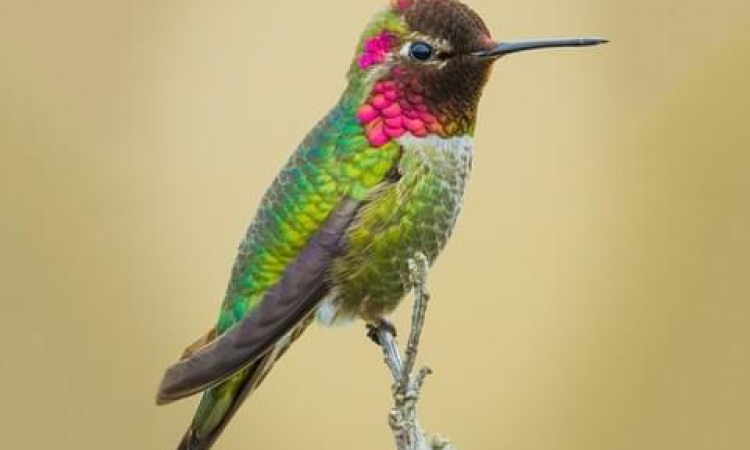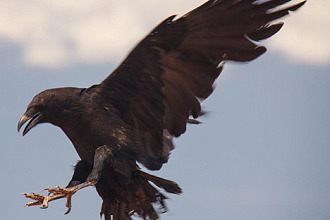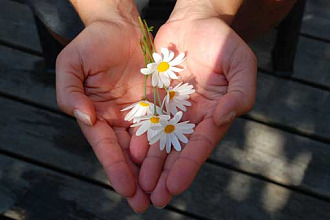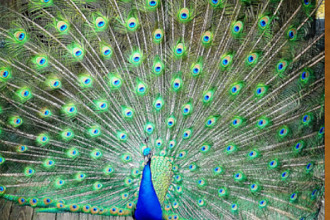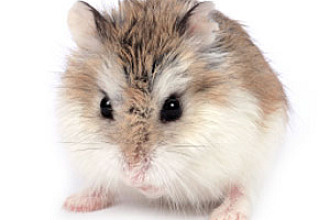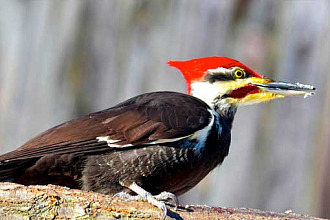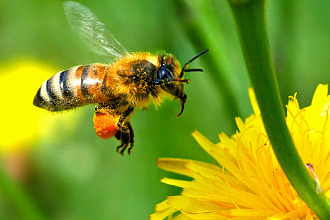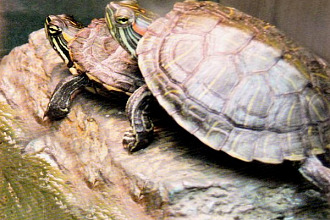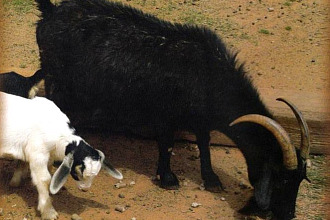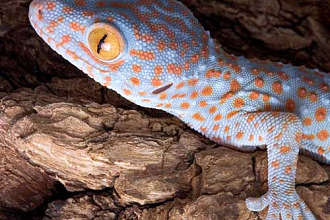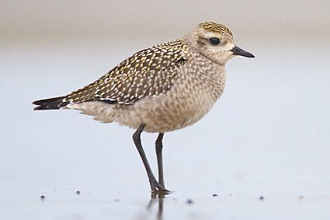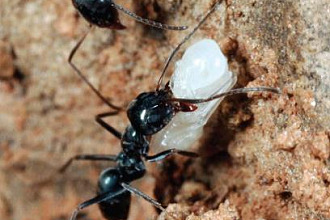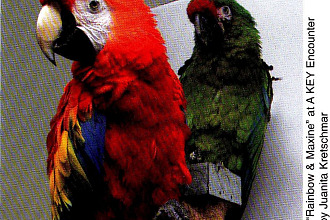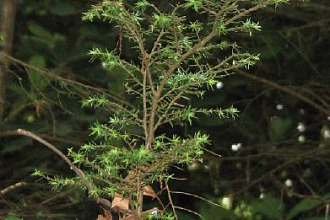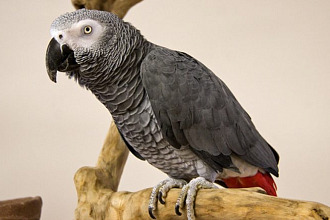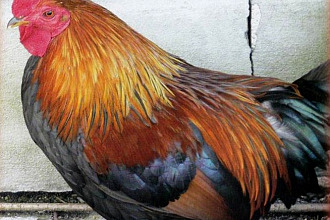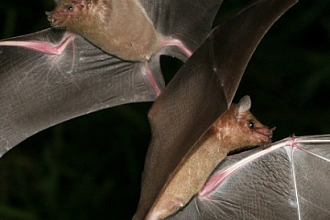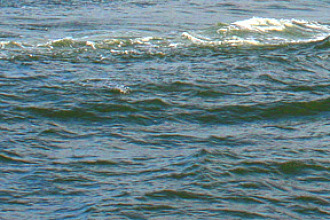The hummingbird is the very smallest of all birds, with some species being just a bit over two inches in length.
And they are the only birds with the ability to fly backward! Their sometimes iridescent wings beat from 8 to 70 times a second, depending on their size—with the smallest of these birds making the most move¬ment! As their wings hum with such rapidity, they use up an enormous amount of energy, but their Creator's design includes a way to meet their extremely fast metabolism rate. In an average day hummingbirds feed in many small meals, consuming up to five times their own body weight in nectar. This not-by-accident design includes tight-fitting bills that can be opened only slightly when they wish—just enough to allow their tongue to dart in and out of the interior of the flow¬ers they help pollinate while they are gaining life-giving nourishment. Another awesome feature of the hummingbird is its ability to assess the amount of sugar in the nectar they taste! The little bird will reject flower types that produce nectar with less than 12% sugar—always preferring a 25% sugar solution for their needs! This has been measured quite precisely, but no one but their Creator knows how the hummingbird does this. However sugar, while energy providing, is not nutri¬tious, and an adult parent in that bird family has been programmed to deal with this. Not by accident the parent hummingbird meets its own needs and those of its young by preying on insects and spiders for protein, amino acids, vitamins and minerals—then feeding it to its babies. Catching insects can be done using another amazing not-by-accident design. The bird's tongue is split at the floor of its lower mandible and since they are able to open their bill wide when desired, they will flex that lower mandible downward and capture a flying insect in the mouth, but not interfere with the tip of their bill that is reaching deep into a flower! Voila! They've gotten energy and caught something nutritious for themselves and their babies at one time!
The heart beat rate of some of these hummingbirds has been measured to reach up to 1,260 beats a minute! As a result, the hummingbird at any moment could be only hours away from starvation, were their hearts to continue beating at that rate around the clock. But the Creator provided another awesome not-by-accident solution for this tiny bird. The hummingbird is able to slow its own heart rate down to anywhere between 50 to 180 beats a minute at night or when an adequate food supply is not available. That's about 10 percent of the rate used when they hover over the flowers that provide them the nectar for their body's needs. They then enter a type of hibernation known as "torpor." As a result, these birds don't follow the general rule of a creature with fast metabolism—which statistics prove has a far shorter life span than other creatures. In fact, hummingbirds have been known to survive in captivity up to 17 years!
There is another awesome factor, unique to the hummingbird, that also occurs when these tiny birds enter the "torpor" state. It has to do with their kidney function. Scientists have found that somehow—and certainly it is a not-by-accident God-given design—there is not only a slowing down of the rate the hummingbird's heart beats, but also the rate of filtration that normally occurs in the kidneys that is called the glomerular filtration rate (GFR). That GFR rate is actually interrupted in the hummingbird during torpor, and dehydration is prevented as glucose, water and salts are not reabsorbed as would normally occur. There is sufficient slow¬ing of the kidney function of the little bird so that it has a physiological mechanism for survival that is unique—found only in that species! That way, when once it's time to fly again—and opportunity for nourishment is near—all functions return to "normal."
The beauty of the hummingbird makes us worshipful of its Creator. The intricate God-wisdom of its design leaves us breathless!
"NOT BY ACCIDENT" (c) Juanita Kretschmar is used by permission and was first published in the book "Not By Accident 2" page 23
Picture originally found here

